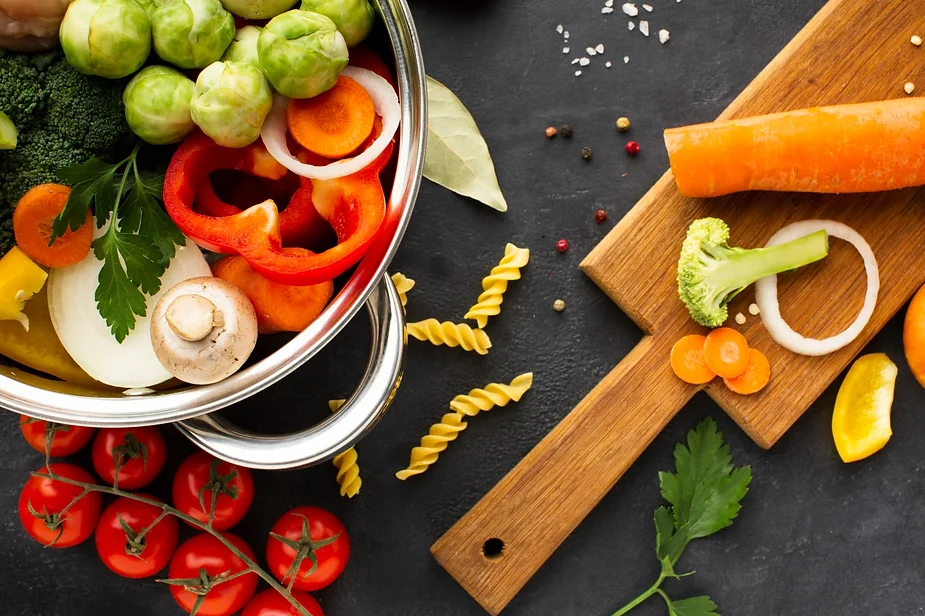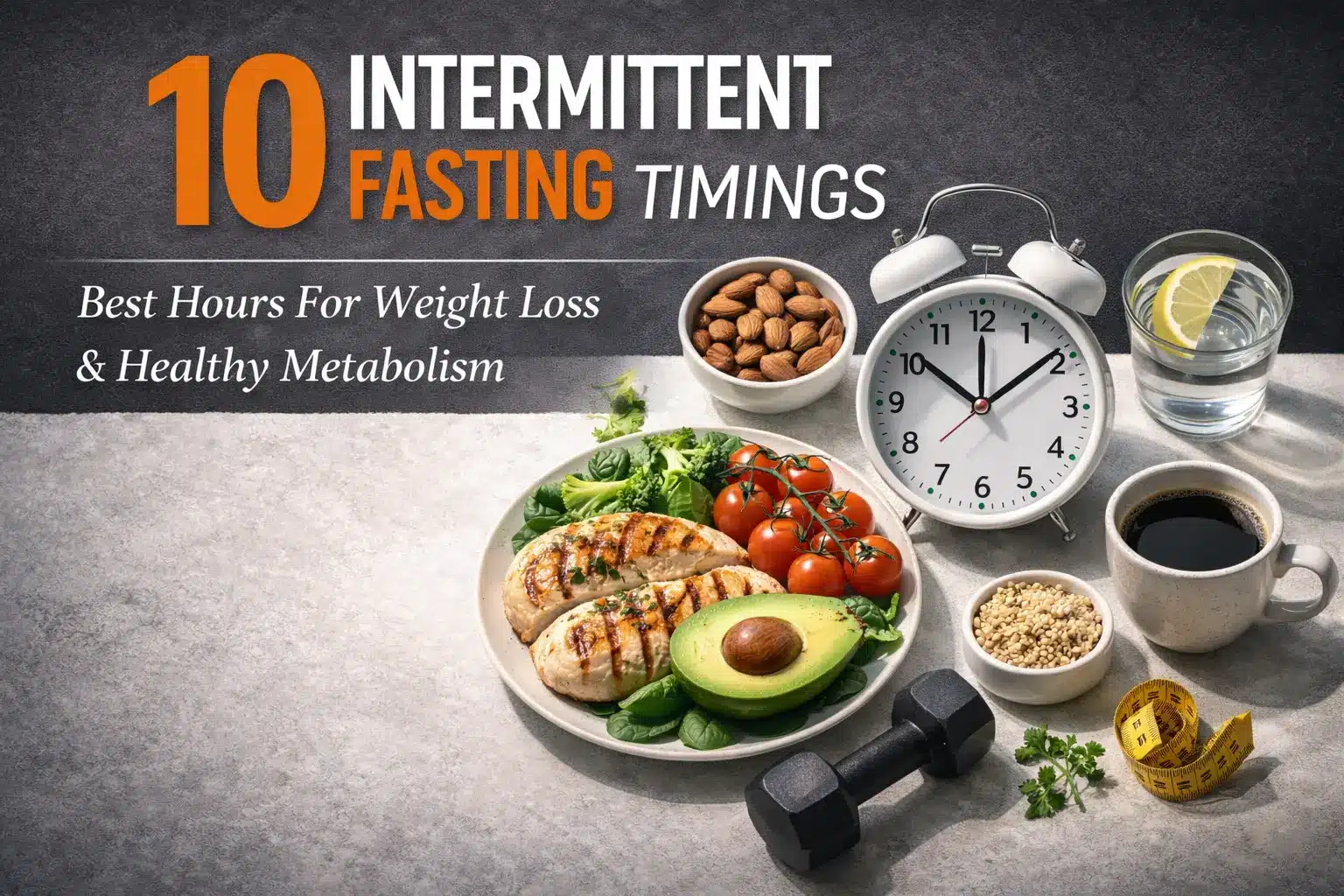Ever feel achy, swollen, or just plain run down? These could be signs of inflammation, a natural process in your body that goes awry sometimes. What you eat can significantly impact your inflammatory response. There are a great number of researched anti infammatory recipes and diet options. Let’s explore the 21 day anti inflammatory diet, a powerful tool to help manage inflammation and reclaim your well-being.
If you are worrying about how to reduce inflammation in the body, how exactly does anti-inflammation food work, and why is it a concern? Let’s break it down.
Symptoms Of Inflammation: Acute vs. Chronic
Let’s explore the two main players: acute and chronic inflammation.
Acute inflammation is your body’s hero in the short term. Imagine scraping your knee – the redness and swelling are signs of this acute response working its magic to repair the damage and fight off infection. It’s usually short-lived and resolves on its own.
Symptoms of acute inflammation include:
- Pain
- Redness
- Swelling
- Heat
- Loss of function
Chronic inflammation becomes the villain when it sticks around for weeks, months, or even years. This can happen due to various factors, including a faulty immune response, certain medical conditions, and yes, even your diet!
While the symptoms of chronic inflammation can vary depending on the underlying condition, some common symptoms include:
- Fatigue
- Weight gain
- Joint pain
- Low-grade fever
- Depression
Unveiling the Benefits of the Anti-Inflammatory Diet
The anti inflammatory recipes and nutrition plan have gained attention for its potential health benefits, particularly in reducing inflammation in the body. Here are 10 scientific and health benefits associated with following an anti-inflammatory diet:
1-Reduced Risk of Chronic Diseases
Chronic inflammation is linked to various diseases such as heart disease, diabetes, cancer, and autoimmune disorders. By reducing inflammation through diet, individuals may lower their risk of developing these conditions.
2-Heart Health
The anti inflammatory foods typically emphasize whole foods, such as fruits, vegetables, nuts, seeds, and fatty fish, which are rich in nutrients like omega-3 fatty acids and antioxidants. These nutrients have been shown to support heart health by lowering cholesterol levels, improving blood vessel function, and reducing the risk of blood clots.
Scientific studies have also demonstrated that adherence to a diet with high anti-inflammatory potential may be associated with lower incidence of heart failure (HF)
3-Weight Management
An anti inflammatory diet encourages the consumption of nutrient-dense, low-calorie foods, which can aid in weight management. Excess body fat is one of the alarming symptoms of inflammation. So maintaining a healthy weight through a natural anti inflammatory diet and aligned lifestyle can help reduce inflammation levels.
4-Improved Digestive Health
A natural anti inflammatory diet, such as fiber-rich fruits and vegetables, help promote a healthy gut microbiota and support digestive health. This can reduce inflammation in the gut and may alleviate symptoms of conditions like irritable bowel syndrome (IBS) and inflammatory bowel disease (IBD).
5-Joint Health
Inflammation plays a role in joint pain and stiffness associated with conditions like arthritis. Some foods in the anti-inflammatory nutrition plan, such as fatty fish and olive oil, contain compounds that may help reduce inflammation in the joints, potentially alleviating symptoms and improving mobility.
6-Brain Health
Chronic inflammation has been linked to cognitive decline and neurodegenerative diseases like Alzheimer’s and Parkinson’s. Antioxidant-rich foods in the anti-inflammatory diet may help protect brain cells from damage and support cognitive function as you age.
In a groundbreaking study published in 2023, researchers unveiled the profound impact of dietary choices on cognitive health and the potential of anti-inflammatory diets, notably the Mediterranean diet, as a formidable weapon against Alzheimer’s disease.
7-Blood Sugar Control
High levels of inflammation can interfere with insulin signaling and lead to insulin resistance, a precursor to type 2 diabetes. Following an anti-inflammatory nutrition plan diet that includes whole grains, lean proteins, and healthy fats can help stabilize blood sugar levels and improve insulin sensitivity.
8-Skin Health
Inflammation can contribute to various skin conditions, such as acne, eczema, and psoriasis. Especially women are eagerly worried about how to reduce inflammation in the body. Some components of the anti-inflammatory nutrition plan, such as omega-3 fatty acids and antioxidants, have been shown to reduce inflammation in the skin and promote a healthy complexion.
9-Reduced Cancer Risk
While more research is needed, some studies suggest that following an anti-inflammatory diet may help lower the risk of certain types of cancer. Antioxidants found in fruits and vegetables can help neutralize free radicals and reduce oxidative stress, which may play a role in cancer development.
10-Improved Overall Well-Being
By focusing on a nutrient-rich natural anti inflammatory diet and minimizing processed foods, individuals may experience higher energy levels, improved mood, better sleep quality, and overall enhanced well-being.
Organic Foods That Decrease Inflammation
Ready to take charge of your health and embark on the top anti-inflammatory diet food list? Let’s stock your kitchen with the ultimate anti-inflammatory all-stars!
This diet emphasizes whole, unprocessed foods that pack a powerful anti-inflammatory punch. Here are some key food groups to focus on:
Fruits and Vegetables
(Aim for 4-5 servings per day – Approximately 200-400 calories per serving)
Nature’s vibrant bounty is loaded with antioxidants and phytonutrients that combat inflammation. Berries (like blueberries and raspberries) are particularly high in anthocyanins, a potent anti-inflammatory compound.
Leafy greens (like spinach, moringa and kale) are rich in vitamins, minerals, and antioxidants that can help manage inflammation. Bell peppers and tomatoes are excellent sources of vitamin C, another key nutrient for a healthy inflammatory response.
Tip: Explore a variety of colorful fruits and vegetables throughout the day to maximize your intake of beneficial anti-inflammatory compounds.
Fatty Fish
(Aim for 2-3 servings per week – Approximately 300-500 calories per serving)
Fatty fish like salmon, tuna, and sardines are rich in omega-3 fatty acids, renowned for their anti-inflammatory properties. Omega-3s can help reduce inflammation throughout the body.
Tip: Aim for wild-caught fatty fish whenever possible for optimal nutrition and a more concentrated source of omega-3s.
Healthy Fats
(Aim for inclusion in most meals and snacks – Variable calories depending on serving size)
Not all fats are created equal! Swap unhealthy saturated fats for heart-healthy options like olive oil, avocados, and nuts. These provide essential nutrients and can help regulate inflammation. Olive oil is rich in oleocanthal, a compound with anti-inflammatory properties.
Avocados are a great source of healthy fats, fiber, and antioxidants. Nuts, like almonds and walnuts, are packed with healthy fats, fiber, and protein, all of which can contribute to a balanced anti-inflammatory diet.
Tip: Use olive oil for cooking and salad dressings. Include a moderate serving (around 1/4 cup) of nuts or half an avocado in your meals or snacks for a satisfying dose of healthy fats.
Whole Grains
(Aim for 3-4 servings per day – Approximately 150-200 calories per serving)
Opt for whole grains like brown rice, quinoa, and whole-wheat bread over refined carbohydrates. Whole grains offer sustained energy and fiber, which can benefit gut health and reduce inflammation. Fiber helps feed the good bacteria in your gut, promoting a healthy gut microbiome which can play a role in managing inflammation.
Tip: Choose whole-grain options whenever possible. Look for breads and pastas labeled “100% whole wheat” and brown rice over white rice.
Legumes
(Aim for 2-3 servings per week – Approximately 150-200 calories per serving)
Beans, lentils, and chickpeas are excellent sources of plant-based protein and fiber. They also contain anti-inflammatory compounds, making them a valuable addition to your diet. Legumes are a good source of fiber and certain nutrients, like folate and magnesium, which may contribute to reducing inflammation.
Tip: Explore different varieties of beans, lentils, and chickpeas to add variety and flavor to your meals. Consider incorporating them into soups, salads, stews, or even dips like hummus.
What Foods Cause Inflammation?
Processed Foods
(Limit or Avoid – Can range from 100-500+ calories per serving)
These are often loaded with inflammatory culprits: refined carbohydrates, unhealthy fats, added sugars, and artificial ingredients. These can trigger inflammation throughout the body and disrupt the delicate balance in your gut microbiome, potentially worsening inflammation. The list of inflammatory foods to avoid includes; Hot dogs, sausages, Hamburgers, pizza, fried chicken, and many more.
Refined Carbohydrates
(Limit – Can range from 150-400+ calories per serving)
White bread, pastries, and sugary cereals are quickly digested, leading to blood sugar spikes and potentially promoting inflammation. When refined carbohydrates are broken down by the body, they cause blood sugar levels to rise rapidly. This can trigger the release of inflammatory markers in the body.
Unhealthy Fats
(Limit – Variable calories depending on serving size)
Processed vegetable oils like soybean oil and corn oil are high in omega-6 fatty acids, which can contribute to inflammation when out of balance with omega-3s. While omega-6 fatty acids are essential, an imbalance can promote inflammation. These processed oils are often used in fried foods, baked goods, and processed snacks.
Alcohol
(Limit or Avoid – Variable calories depending on type and amount)
Excessive alcohol consumption can contribute to inflammation throughout the body. Alcohol can disrupt gut health, impair immune function, and contribute to the production of inflammatory markers.
Limit alcohol intake or consider eliminating it during this program: If you do choose to drink alcohol, do so in moderation.
Sample 21 Day Anti-Inflammatory Diet Recipes
Here’s a sample meal plan for the 21 day anti-inflammatory diet with three options for each meal, providing a variety to kickstart your journey towards a healthier you! Remember, these are estimates, and calorie needs can vary based on individual factors.
Breakfast (Aim for 300-400 calories)
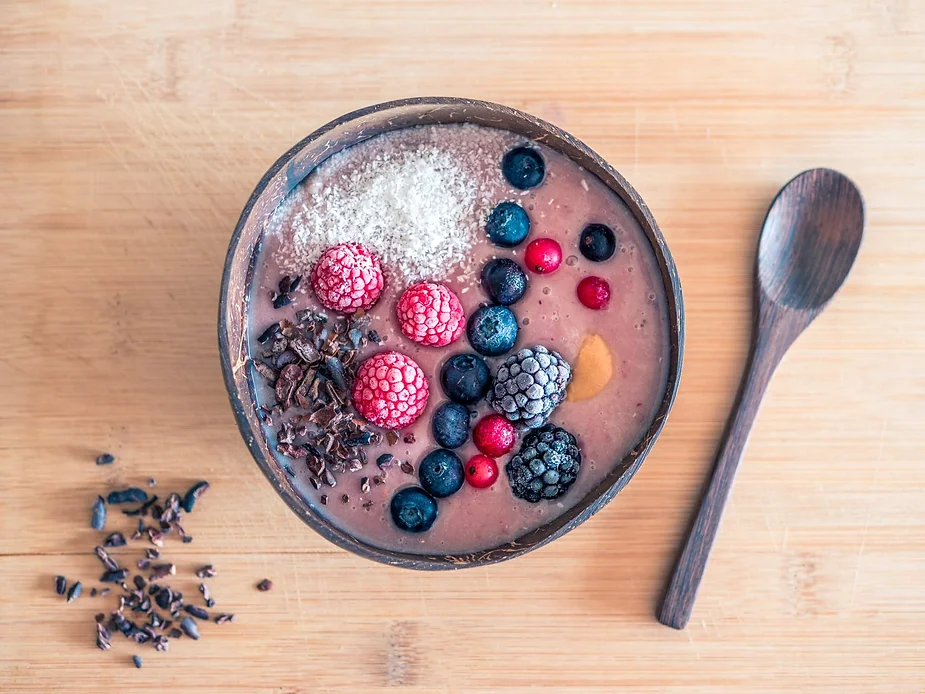
Option 1: Greek yogurt (200g) with berries (1 cup), chia seeds (1 tbsp), and a sprinkle of chopped nuts (1/4 cup) – Approximately 350 calories
Option 2: Scrambled eggs (2 eggs) with spinach (1 cup), whole-wheat toast (1 slice) and avocado slices (1/4 avocado) – Approximately 400 calories
Option 3 (Vegan): Smoothie made with plant-based milk (1 cup), unsweetened almond butter (1 tbsp), banana (1/2), frozen berries (1/2 cup), and spinach (1/2 cup) – Approximately 350 calories
Lunch (Aim for 400-500 calories)
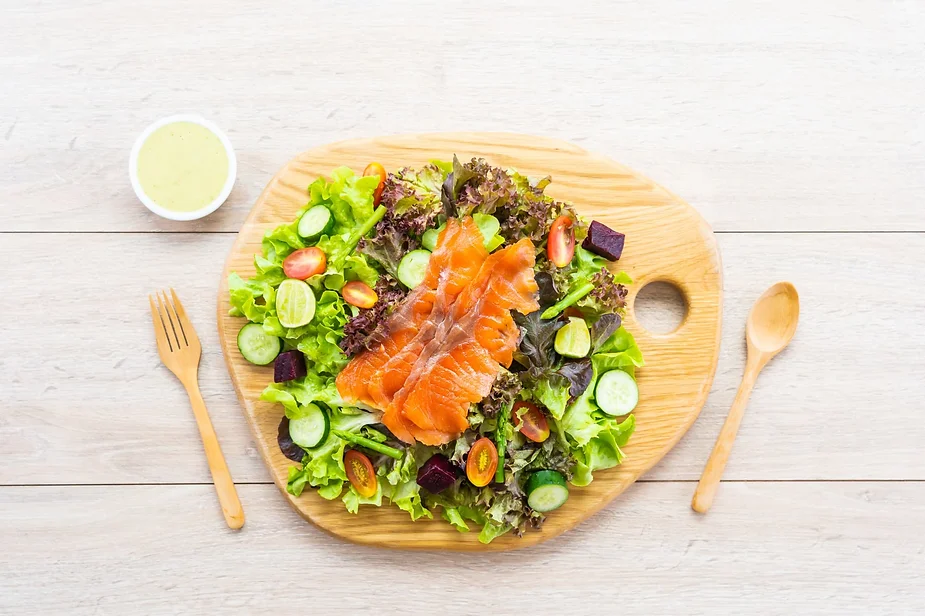
Option 1: Salmon salad (3 oz salmon) with mixed greens (2 cups), quinoa (1/2 cup), and a lemon vinaigrette dressing (2 tbsp) – Approximately 450 calories
Option 2: Lentil soup (1 cup) with a side salad (2 cups) and whole-wheat bread (1 slice) – Approximately 400 calories
Option 3 (Vegetarian): Black bean burgers (2 small patties) on a whole-wheat bun with roasted vegetables (1 cup) and a side salad (2 cups) with a light vinaigrette dressing – Approximately 500 calories
Dinner (Aim for 500-600 calories)
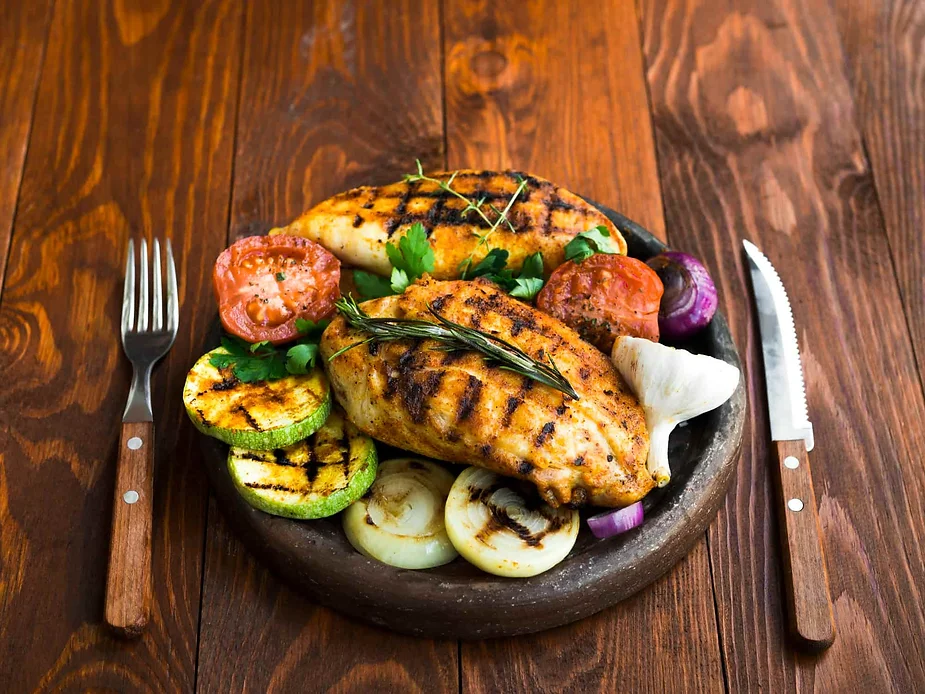
Option 1: Baked chicken breast (4 oz) with roasted vegetables (2 cups) and brown rice (1 cup) – Approximately 550 calories
Option 2: Vegetarian chili (2 cups) with a side salad (2 cups) and a slice of whole-wheat bread – Approximately 500 calories
Option 3 (Vegan): Tofu stir-fry (1 block tofu) with mixed vegetables (2 cups) and brown rice (1 cup) – Approximately 600 calories
Snacks (Aim for 150-200 calories each)
-
Fruits (apples, bananas, berries) with nut butter (1 tbsp)
-
Handful of almonds or walnuts (1/4 cup)
-
Sliced vegetables with hummus (1/2 cup)
-
Greek yogurt (100g) with a sprinkle of granola (1/4 cup)
Tips for Success and Beyond
Embarking on a new dietary approach is exciting, but maintaining motivation throughout the 21 days can be a challenge. Let’s explore some tips to ensure a smooth and successful journey:
Stay Hydrated: Water is essential for overall health and can help reduce inflammation. Aim for eight glasses of water daily.
Prioritize Sleep: Rest allows your body to repair and reduces stress hormones that can contribute to inflammation. Aim for 7-8 hours of quality sleep each night.
Manage Stress: Chronic stress can worsen inflammation. Find healthy ways to manage stress, like yoga, meditation, or spending time in nature.
Mindful Eating: Slow down and savor your meals. Pay attention to hunger and fullness cues to avoid overeating.
Celebrate Non-Scale Victories: Don’t just focus on the scale. Celebrate improvements in energy levels, pain reduction, and overall well-being.
Find an Accountability Partner: Having a friend or family member join you on this journey can provide support and motivation.
Remember, the 21 days are just the beginning! This program can be a springboard for creating long-term, sustainable anti-inflammatory habits.
Focus on Progress, Not Perfection: Don’t get discouraged by occasional slip-ups. Just get back on track and keep moving forward.
Explore Anti-inflammatory Recipes: There are countless delicious and healthy anti-inflammatory recipes readily available. Experiment and have fun in the kitchen!
Consult a Healthcare Professional: If you have any underlying health conditions, it’s best to discuss the 21 day anti-inflammatory diet with your doctor or a registered dietitian.
Side Tips
Meal prep: Preparing meals in advance can save time and ensure you have healthy options readily available.
Portion control: Be mindful of portion sizes to avoid overeating, even with healthy foods.
Dietary modifications: If you have specific dietary restrictions (vegetarian, gluten-free), you can still adapt this plan to fit your needs. There are plenty of delicious and anti-inflammatory nutrition plans available!
Conclusion
In conclusion, the foods you eat play a crucial role in your overall health, impacting factors such as weight loss, blood sugar levels, and inflammation. Incorporating omega-3 fatty acids from sources like nuts and seeds can contribute to anti-inflammatory effects, potentially beneficial for conditions such as rheumatoid arthritis and other autoimmune diseases.
Conversely, diets high in red and processed meats, saturated fats, and processed foods may exacerbate inflammation and increase the risk of chronic diseases like type 2 diabetes and high blood pressure. By prioritizing a diet rich in fruits and vegetables, individuals can support their health goals, including losing weight and reducing inflammation without relying solely on anti-inflammatory drugs.
The 21 day anti-inflammatory diet is more than just a temporary fix. It’s a potent tool to embark on a journey towards a healthier, inflammation-free you. By incorporating anti-inflammatory foods, managing stress, and prioritizing healthy habits, you can unlock a world of benefits.
We encourage you to share your experiences and questions in the comments below.
Share your thoughts, questions, or experiences with the 21 day anti-inflammatory nutrition plan.
Subscribe: Stay tuned for more informative content on healthy living and managing inflammation.
Disclaimer: This information is for educational purposes only and should not be construed as medical advice. Always consult with a healthcare professional before starting any new diet or exercise program

